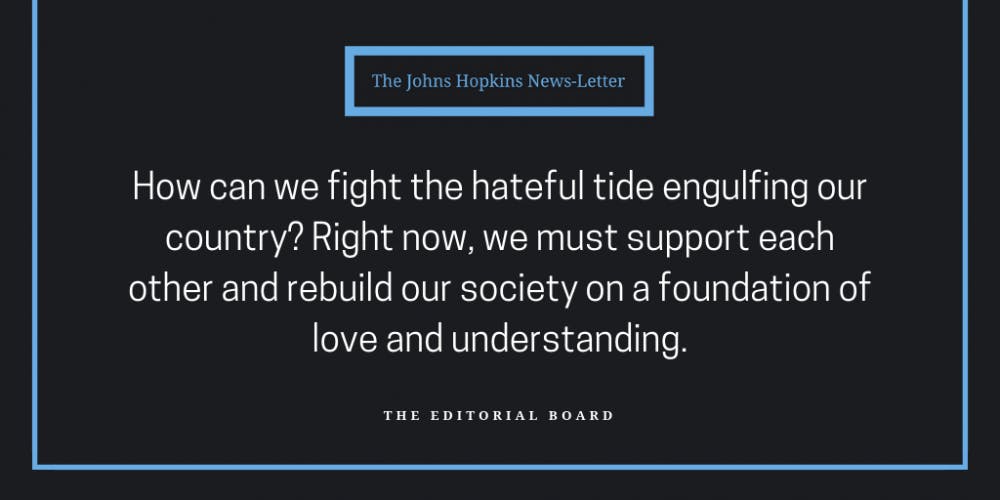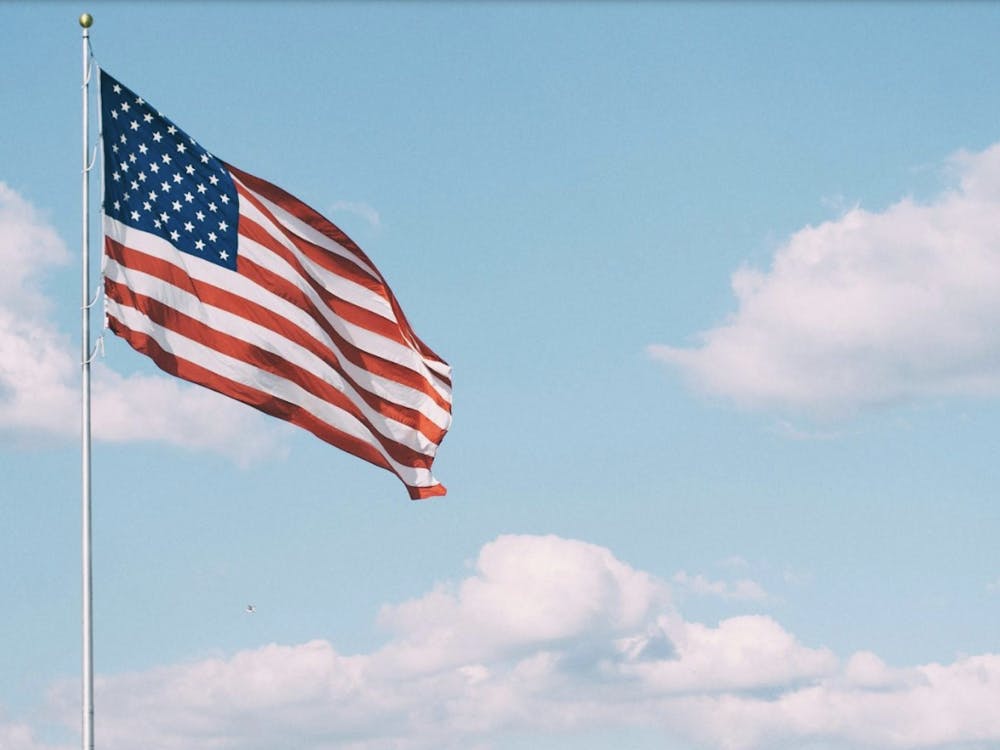Many of us are reeling from the recent surge of violence we’ve witnessed over the past weeks. On Saturday, a man shot and killed 11 people at a synagogue in Pittsburgh. On the Wednesday before that, a gunman in Kentucky attempted to break into a black church and then proceeded to kill two black people, Maurice E. Stallard and Vickie Lee Jones, at a nearby supermarket. And last week, a man sent pipe bombs to the offices and homes of several politicians and journalists.
These violent acts only confirm that we are living in a culture where hate is becoming normalized. Whenever we read the news and hear about another shooting or another hate crime, many of us barely take the time to grieve. How is it possible that we’ve become so desensitized?
We elected President Donald Trump, who has denied that he is racist but has nevertheless become a white supremacist icon. Elsewhere we’re seeing fascism and populism on the rise, most recently with Brazil’s election of far right-wing politician Jair Bolsonaro on Sunday. Neo-Nazis have become more visible and more violent, leading Unite the Right rallies this year and last year. And the Pittsburgh shooting, the deadliest anti-Semitic attack in U.S. history, joins a rise in anti-Semitic incidents in our country. In 2017, the Anti-Defamation League reported a 57 percent increase in anti-Semitic incidents.
In the wake of these crimes, we’re left to ponder possible solutions. For those of us who are eligible, we know how important it is to vote next week. But that’s the bare minimum. Voting will not be enough.
In order to dismantle the culture of hate we live in, we must be more critical about the language that we, and those around us, use. Violent acts do not occur in a vacuum; they reflect the ideas and attitudes of our culture. Violent and hateful rhetoric breeds a culture in which violent and hateful acts become more permissible.
In our editorial last week, we talked about the importance of free speech. But it is important to differentiate between free speech and hate speech that is unprotected. The First Amendment does protect many types of speech, including generic racist chants. It does not, however, protect slurs targeted at specific people — fighting words that, when spoken, “inflict injury or tend to incite an immediate breach of the peace.” There’s a difference between persuading and challenging others to look at diverse perspectives and calling for the deaths of innocent people based on their religious beliefs, ethnicity, gender or sexuality.
Social media has empowered those who want to fight injustice. But it’s also empowered extremists and provided a platform for them to share their toxic messages. Right before he opened fire at the Tree of Life synagogue, Rob Bowers was active on Gab, a social network that has become a hotspot for white supremacists and neo-Nazis.
While Twitter and Facebook have tried to prevent hateful and violent rhetoric that spreads misinformation, Gab’s guidelines do not place limitations on its users’ speech – hence its allowance of Bowers’ anti-Semitic comments. The website portrays itself as a unique crusader of free speech, and strictly speaking, it’s not unconstitutional for it to act as a platform for anti-Semites like Bowers. But we believe Gab’s condoning of hate speech helps foster a culture of hate-based violence in real life. It may have released a statement after the shooting denouncing “all acts of terrorism and violence,” but the damage has been done.
Of course, censorship of social media is not going to be a viable solution to eradicating hate speech. This is especially true given the vague definition of unprotected speech, which includes “true threats” and defamation. Rather, it is imperative that we keep social media platforms like Gab accountable and urge them respond to reports of inappropriate and hateful content more quickly, in the same way that other social media platforms have tried to do.
In addition to thinking critically about how our social media networks can provide a platform for hate, we must think about the power of labels and language in identifying and perpetuating hate. We must call out hate when we see it. It is our civic duty not only to #votethemout, but also to cry fascist when we see one winning the Brazilian presidential election. It is our duty to describe people with the labels they deserve and not with ones that are easier to swallow. Don’t say “alt-right,” for example, to describe Unite the Right rally participants. Instead, say “white supremacist” or “neo-Nazi.”
We must recognize that our language can have significant consequences. That cracking Holocaust jokes might be casual racism, and that it can legitimize fascist views and contribute to a political climate where anti-Semitic violence isn’t out of the ordinary.
Even if you don’t consider yourself an anti-Semite, the words that you use still matter.
All of us carry the responsibility to reexamine the language that we use and think critically about how we may contribute to a culture where hate is permissible. As former U.S. President Barack Obama wrote in a tweet after the shootings: “All of us have to fight the rise of anti-Semitism and hateful rhetoric against those who look, love, or pray differently.”
Hate may be more visible and widespread now that politicians and individuals have given it space to fester in our society. But we’ve also proven that we can fight it. On Sunday, community members held a rally at the Holocaust Memorial in Baltimore. On Tuesday, hundreds of students, faculty and staff of diverse backgrounds gathered for a vigil on the Beach in honor of those who lost their lives at the Pittsburgh shooting. At times, we may wonder if standing in solidarity is enough. How can we fight the hateful tide engulfing our country? Right now, it is what we must do in order to support each other and rebuild our society on a foundation of love and understanding.
At Tuesday’s vigil, Rabbi Eric Abbott, the senior Jewish educator at Hopkins Hillel, called on us to remember the values that strengthen us and rely on them as we move forward.
“We have certain values that go against everything that the shooter stands for, that these people who espouse hate stand for,” he said. “And we just want to show that there are certain things that conquer all. Love is one of them. Hope is one of them. Community is one of them. By being here together, we can make a difference.”





